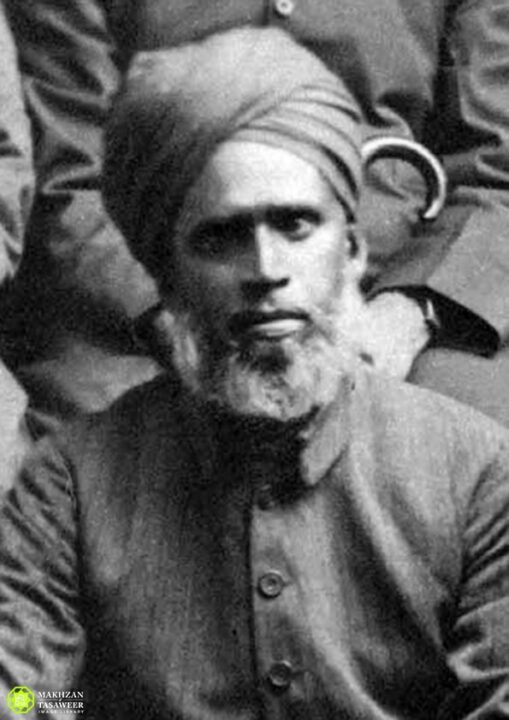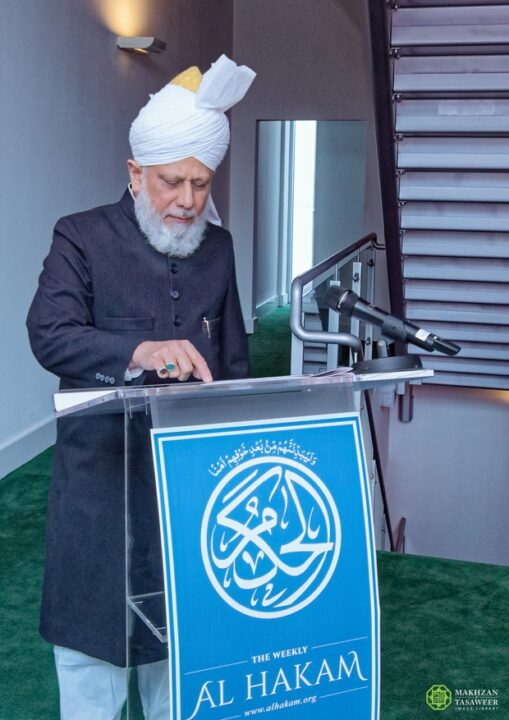Jazib Mehmood, Student, Jamia Ahmadiyya Ghana
By the grace of Allah, the weekly Al Hakam is entering its fourth year of publication since its relaunch back in 2018. It felt appropriate that a small piece be written to commemorate the occasion.
The Al Hakam newspaper enjoys the unique honour of being the very first newspaper the Ahmadiyya Muslim Jamaat published back in 1897. Today there are 122 Jamaat magazines, newspapers and newsletters, published in 26 languages (Al Hakam, 9 August 2019, issue 73, p. 7). They all came after this first seedling was planted.
A young able companion of the Promised Messiahas, Hazrat Sheikh Yaqub Ali Irfanira started the paper on his dime. He had worked for several newspapers and was yearning for the Jamaat’s own paper.

In 1897, he wrote to Huzooras with the idea, but Huzooras replied, “We have no experience in this. [We] need a newspaper but our Jamaat is an impoverished Jamaat. It cannot bear the financial constraint. If you can issue it based on your experience, you may do so. May Allah bless this [endeavour].” (Hayat-e-Ahmad, Vol. 4, pp. 542-543; Tarikh-e-Ahmadiyyat, Vol. 1, p. 641)
Hazrat Sheikh Sahibra started Al Hakam himself and served as its editor. Even though the Jamaat could not fund it or own it in any way at the start (there wasn’t really a formal community as we know it at the time), he devoted the paper for the Jamaat’s cause.
The first issue came out on 8 October 1897. It was first published in Amritsar, but the next year, in 1898, it shifted to Qadian and was published from there every week. At the time, this was no small feat, especially for a small village like Qadian.

Since many companions of the Promised Messiahas were unable to stay in Qadian with him for long, Al Hakam was the first platform through which they could keep up with the news in Qadian, divine revelations and speeches, announcements and words of guidance of the Promised Messiahas.
Any new revelation, prophecy or incident that happened during the week would be included in the paper that very week. The editor – who had a very fast hand – would stay with the Promised Messiahas and write down everything that Huzooras used to say in gatherings and even on walks. Huzooras also penned articles for the paper himself.
Thus, the paper became the keeper of the early history of the Jamaat. In later years, this greatly helped in compiling Malfuzat, the compilation of the sayings and discourses of the Promised Messiahas, which makes several volumes. Tadhkirah, the compilation of the dreams and revelations of the Promised Messiahas was also greatly helped by this paper.
This was only possible because of this paper and the Badr newspaper, which later adopted the same strategy.
It played such a pivotal role for the early and later Jamaat that Huzooras affectionately called Al Hakam and its younger sibling, Badr, the two arms of the Jamaat. (Malfuzat, Vol. 4, p. 292; Silsila-e-Ahmadiyya, Vol. 1, p. 80)
Huzooras was personally fond of newspapers and magazines. Huzooras used to read many papers daily and had even written for some of them. (Seerat Masih-e-Maud by Hazrat Yaqub Ali Irfanira, p. 71)
Naturally, Huzooras had a very high regard for the Jamaat’s papers. By 1902, the newspapers were widely read and had become spokespersons of the Jamaat. Huzooras called the editors of Al Hakam and Badr and advised them to be careful of what they printed in their papers. (Malfuzat, Vol. 2, pp. 478-479)
Sometime after the death of the Promised Messiahas, however, the paper had trouble staying afloat due to the financial situation of the Jamaat and was eventually shut down.
It was during the time of Hazrat Musleh-e-Maudra that Al Hakam was relaunched once again – to his great pleasure. Following his father’s footsteps, Hazrat Musleh-e-Maudra also used to read newspapers without fail and attributed this habit to the Promised Messiahas. (Khutbat-e-Mahmud, Vol. 16, p. 36)
So when Hazrat Sheikh Yaqub Ali Sahib Irfanira revived the newspaper in early 1934, Huzoorra wrote to him:
“Al Hakam is the first ever newspaper of the Jamaat and no other newspaper can receive such an opportunity as it [Al Hakam] received to serve [the Jamaat], even if it spends thousands of rupees.
“I declare that whether Al Hakam survives in its physical form or not, its name will live forever. No significant work of the Jamaat can be completed without [mentioning] it as it bears the history of the Jamaat.
“It is my heartfelt desire that Al Hakam, the name which suggests the reverence given to the Promised Messiah, peace be upon him, by members of the Jamaat, remains in its physical form also.” (Al Hakam, 14 January 1934; Tarikh-e-Ahmadiyyat, Vol. 6, pp. 147-148)
Unfortunately, though, soon after, it shut down once again. But as Hazrat Musleh-e-Maudra stated, in no way did that diminish its importance.
Advising members of the Jamaat, Huzoorra once said:
“I draw the attention of friends once again, even perhaps for the twentieth time – or even more than that – that reading the publications of newspapers and magazines of the community is an important obligation of theirs. They should remember that a tree which is not watered becomes dry, and according to the needs of this time, newspapers act like the water [that the Jamaat needs] and reading them is essential.” (Anwar-ul-Ulum, Vol. 16, p. 244)
He further states:
“Friends must buy these newspapers and magazines in great numbers and they should consider buying and reading them as essential as breathing is essential for life.” (Ibid, p. 248)
Hazrat Khalifatul Masih IIIrh also felt the same. He advised:
“To keep the Jamaat vigilant, it is important that every individual of the Jamaat – old and young, man and woman – makes it a habit to read the newspapers and magazines of the Jamaat.” (Concluding address at Ansarullah Markaziyah Ijtema, 29 October 1967, Sabeel-ur-Rishad, Vol. 2, p. 67)
Then, three years ago, on 23 March 2018, the weekly Al Hakam was relaunched, this time in English. During his Friday Sermon, Huzooraa announced the relaunch, calling it a source of good news and praying for its continuous publication.

Huzooraa said:
“Since this newspaper will be in English, therefore the English-speaking members should derive maximum benefit from this.” (Friday Sermon, 23 March 2018; Al Hakam 30 March 2018, issue 2, p. 1)
Today, Al Hakam is a flourishing newspaper with something for everyone. Reading this paper every week is enough to learn something about so many topics.
History aficionados can particularly enjoy the “This Week in History” section. The excerpts from “100 Years Ago…” also paint a rather nostalgic picture.
Many of us can’t open ahadith books during the week, but we can read a hadith every week. For those unable to find time to read the books of the Promised Messiahas regularly, they can read excerpts of his discourses on the front page of the paper.
Hazrat Khalifatul Masih Vaa, advising Jamia Ahmadiyya UK students to read the excerpts in various magazines, once said:
“If you aren’t reading any book, at least read the excerpts. Excerpts are always printed in the Jamaat’s magazines. It will make a difference in your memory from now and it will become a habit.” (The Daily Al Fazl, 18 June 2008, Vol. 93, number 137, p. 1)

It can be difficult to keep up with activities in the markaz and the worldwide Jamaat, but Al Hakam brings us up to speed like it used to do during the time of the Promised Messiahaa.
It’s hard to know how to answer allegations against the Jamaat, but reading the articles under the “Responding to Allegations” section can help give a brief but comprehensive answer.
Then, many people write for the paper too. They all have new things to share – something worth pondering over. Every once in a while, Al Hakam also gives a voice to those who have insightful opinions to share.
Finally, the full text of the Friday Sermon is available in every issue. Listening to the live sermon is important, but reading it recounts things we might have missed. Sometimes the live translation is also difficult to understand, but the full text makes it easy.
More than anything, Al Hakam attaches you to the Jamaat in a filial sort of way that isn’t easily describable. Personally, I am always excited to see what’s in the paper each week.

